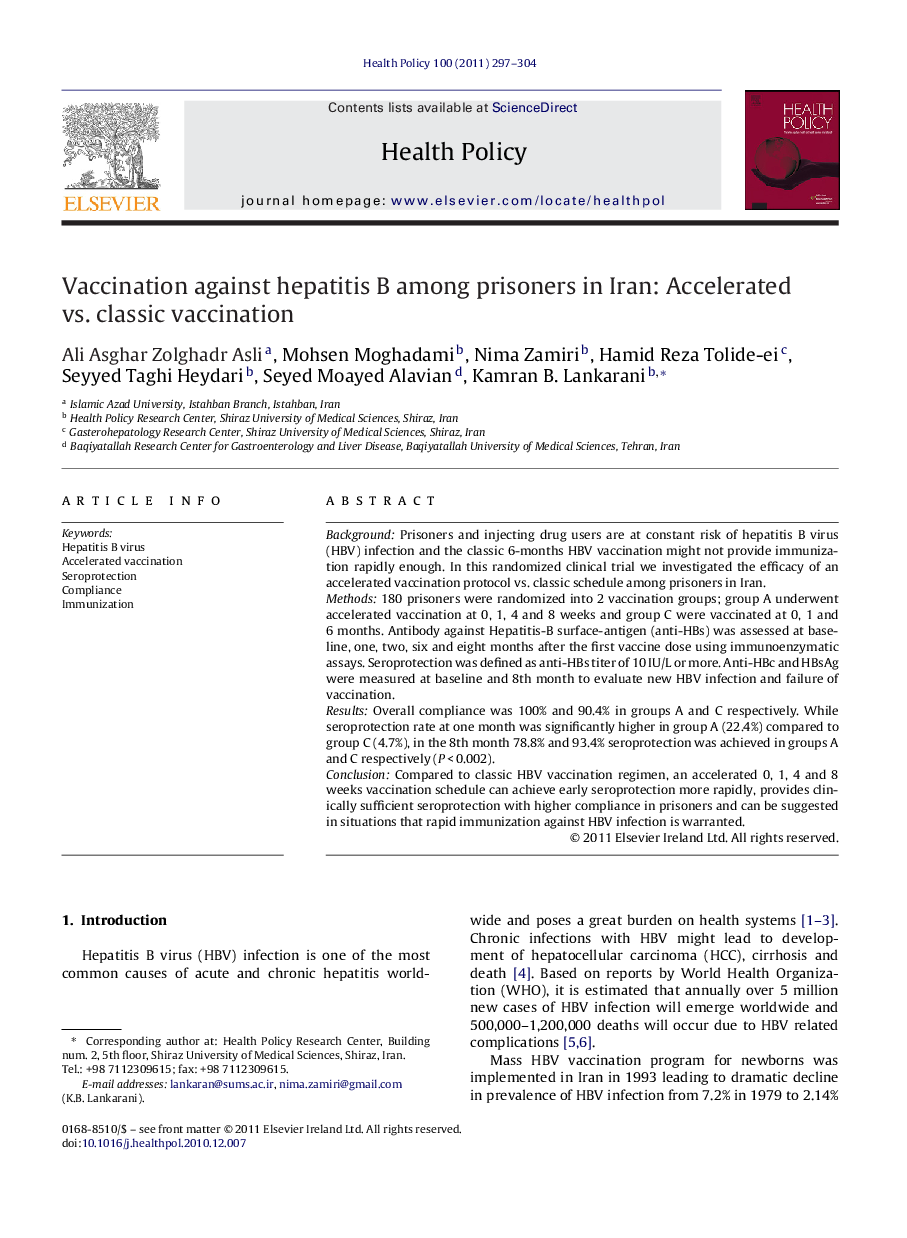| Article ID | Journal | Published Year | Pages | File Type |
|---|---|---|---|---|
| 4198171 | Health Policy | 2011 | 8 Pages |
BackgroundPrisoners and injecting drug users are at constant risk of hepatitis B virus (HBV) infection and the classic 6-months HBV vaccination might not provide immunization rapidly enough. In this randomized clinical trial we investigated the efficacy of an accelerated vaccination protocol vs. classic schedule among prisoners in Iran.Methods180 prisoners were randomized into 2 vaccination groups; group A underwent accelerated vaccination at 0, 1, 4 and 8 weeks and group C were vaccinated at 0, 1 and 6 months. Antibody against Hepatitis-B surface-antigen (anti-HBs) was assessed at baseline, one, two, six and eight months after the first vaccine dose using immunoenzymatic assays. Seroprotection was defined as anti-HBs titer of 10 IU/L or more. Anti-HBc and HBsAg were measured at baseline and 8th month to evaluate new HBV infection and failure of vaccination.ResultsOverall compliance was 100% and 90.4% in groups A and C respectively. While seroprotection rate at one month was significantly higher in group A (22.4%) compared to group C (4.7%), in the 8th month 78.8% and 93.4% seroprotection was achieved in groups A and C respectively (P < 0.002).ConclusionCompared to classic HBV vaccination regimen, an accelerated 0, 1, 4 and 8 weeks vaccination schedule can achieve early seroprotection more rapidly, provides clinically sufficient seroprotection with higher compliance in prisoners and can be suggested in situations that rapid immunization against HBV infection is warranted.
